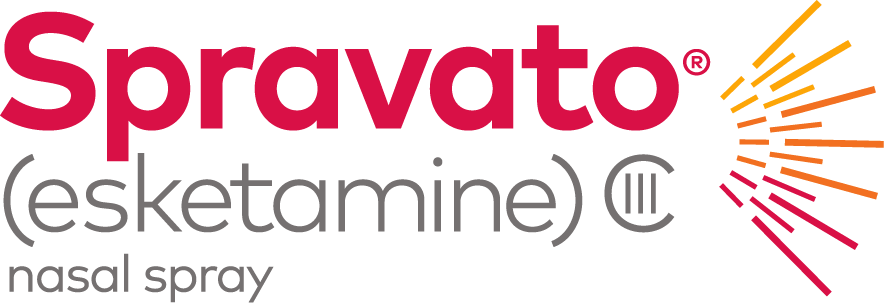Esketamine, or Spravato, is another treatment derived from ketamine that makes powerful antidepressant relief available to be delivered intra-nasally, similar to a common nasal decongestant.
Unlike antidepressants, which need to be taken every day, Spravato is only administered a couple of times each week: Two treatments per week for the first month, then one treatment per week for the second month, and one treatment every two weeks for subsequent months.
Esketamine therapy patients generally report some sedation and disassociation effects during or shortly after the administration of the drug. Other side effects may include nausea, dizziness, vertigo, or headache.
Before starting esketamine therapy, we will discuss all potential side effects and interactions, and make sure Spravato is right for you.
Esketamine, or Spravato, is the first nasal spray medication that is a treatment for depression. Combined with an antidepressant, Spravato is FDA-approved to treat depression and has been clinically shown to improve symptoms of depression over just 4 weeks.
Compulsions are the part of OCD, which are defined as physical or cognitive behaviors that are performed most often in a ritualistic, routine way in order to relieve oneself from the distressing feelings brought on by the obsessions. These compulsive behaviors tend to relieve the stress or anxiety temporarily and will begin again when the intrusive thoughts enter one’s mind again.
The intrusive thoughts or “obsessions” are typically not desired by an individual but they are incapable of controlling them. Patients therefore end up in a looping pattern, performing their compulsive behavior over and over again due to the repetitive intrusive thoughts. Some patients may also avoid certain situations or scenarios that could trigger their obsessions.
Symptoms of OCD can be difficult to detect because there are many routines that are performed by individuals that are not life intrusive. However, when routines become compulsions that interfere with work, social-life or day-to-day function, this can lead to a poor quality of life.
